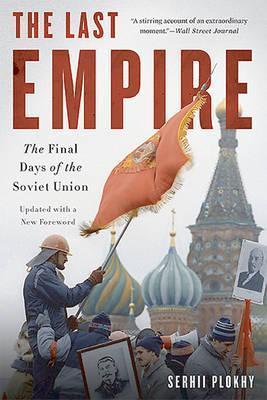內容簡介
內容簡介 哈佛大學烏克蘭史教授浦洛基(Serhii M. Plokhy)根據最新解密的檔案與關鍵當事者的訪談,解析蘇聯解體的原因。他的詮釋與過去數十年來美國的主流論述大相逕庭,卻深具說服力,因此榮獲倫敦普希金之家(Pushkin House)2015年俄羅斯圖書獎。蘇聯第一任也是最後一任總統戈巴契夫,在1991年的耶誕節下台。就在當天不久之後,美國總統老布希對全國宣布,這是美國在冷戰的勝利。把冷戰的結束連結到蘇聯解體,民主價值大勝共產主義這樣的論述,在布希演說後,成為美國公共論述的主流,並且持續了數十年之久。然而,對作者而言,蘇聯解體與美國的手筆完全無關。他在本書揭露,當時美國領導人所擔心的是,蘇聯政府會因為內鬥與經濟動盪而突然垮台,使得當時的火藥庫立即陷入一片混亂。因此,布希反對烏克蘭、莫爾多與高加索地區的獨立,而且向戈巴契夫承諾會得到他的支持。然而,就在烏克蘭於1991年秋天舉辦獨立公投後,蘇聯各共和國的獨立運動之勢已難以阻擋,布希最後便放棄了戈巴契夫。浦洛基認為,除了內鬥,蘇聯瓦解的主因,是因為最大的兩個共和國 – 俄羅斯與烏克蘭無法繼續成為聯盟之故。將蘇維埃解體歸功於美國的各種行動,是美國決策者高估了自己推翻並且再建外國政權的能力。美國在蘇聯解體所扮演的重要角色不僅是個神話,美國政府也因為這個錯誤的想法誤導了它的外交政策。On Christmas Day, 1991, President George H. W. Bush addressed the nation to declare an American victory in the Cold War: earlier that day Mikhail Gorbachev had resigned as the first and last Soviet president. The enshrining of that narrative, one in which the end of the Cold War was linked to the disintegration of the Soviet Union and the triumph of democratic values over communism, took center stage in American public discourse immediately after Bush's speech and has persisted for decades—with disastrous consequences for American standing in the world.As prize-winning historian Serhii Plokhy reveals in The Last Empire, the collapse of the Soviet Union was anything but the handiwork of the United States. On the contrary, American leaders dreaded the possibility that the Soviet Union—weakened by infighting and economic turmoil—might suddenly crumble, throwing all of Eurasia into chaos. Bush was firmly committed to supporting his ally and personal friend Gorbachev, and remained wary of nationalist or radical leaders such as recently elected Russian President Boris Yeltsin. Fearing what might happen to the large Soviet nuclear arsenal in the event of the union's collapse, Bush stood by Gorbachev as he resisted the growing independence movements in Ukraine, Moldova, and the Caucasus. Plokhy's detailed, authoritative account shows that it was only after the movement for independence of the republics had gained undeniable momentum on the eve of the Ukrainian vote for independence that fall that Bush finally abandoned Gorbachev to his fate.Drawing on recently declassified documents and original interviews with key participants, Plokhy presents a bold new interpretation of the Soviet Union's final months and argues that the key to the Soviet collapse was the inability of the two largest Soviet republics, Russia and Ukraine, to agree on the continuing existence of a unified state. By attributing the Soviet collapse to the impact of American actions, US policy makers overrated their own capacities in toppling and rebuilding foreign regimes. Not only was the key American role in the demise of the Soviet Union a myth, but this misplaced belief has guided—and haunted—American foreign policy ever since.
作者介紹
作者介紹 Serhii Plokhy is Mykhailo Hrushevsky Professor of Ukrainian History at Harvard University. A recipient of Harvard University's Walter Channing Cabot award and author of Yalta: The Price of Peace, Plokhy lives in Arlington, Massachusetts.
